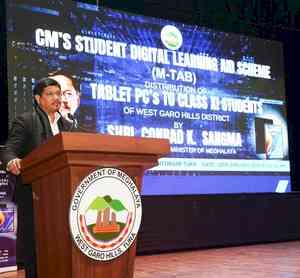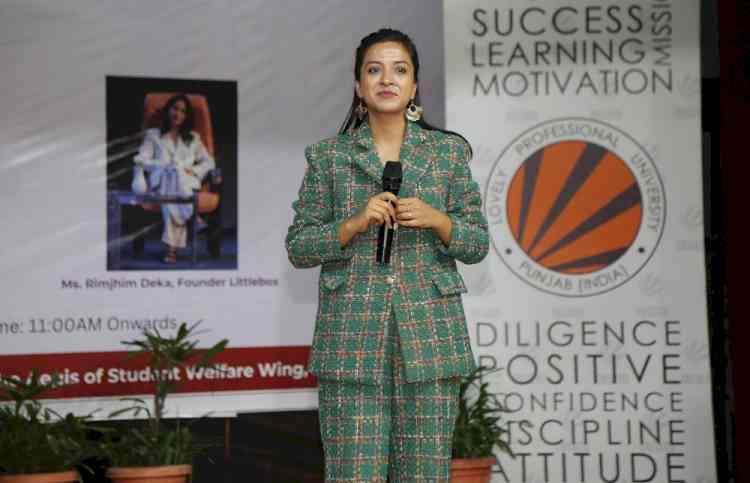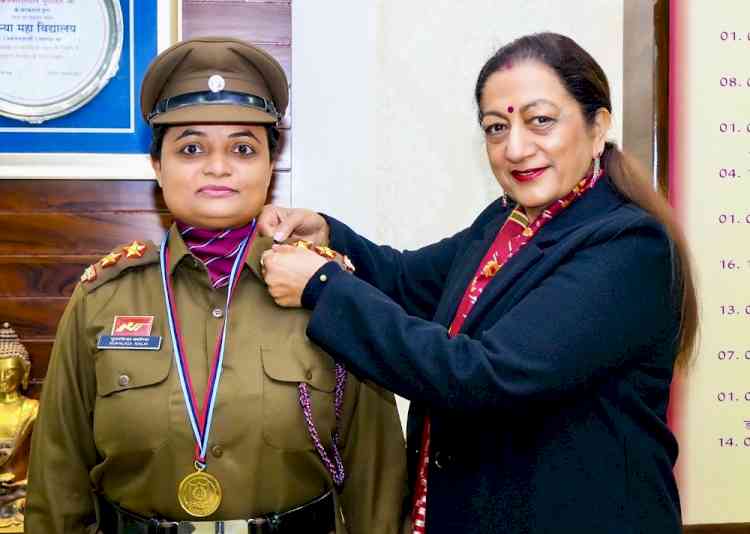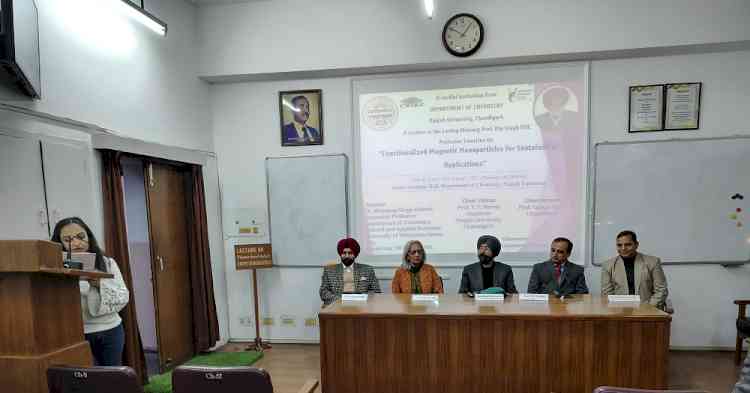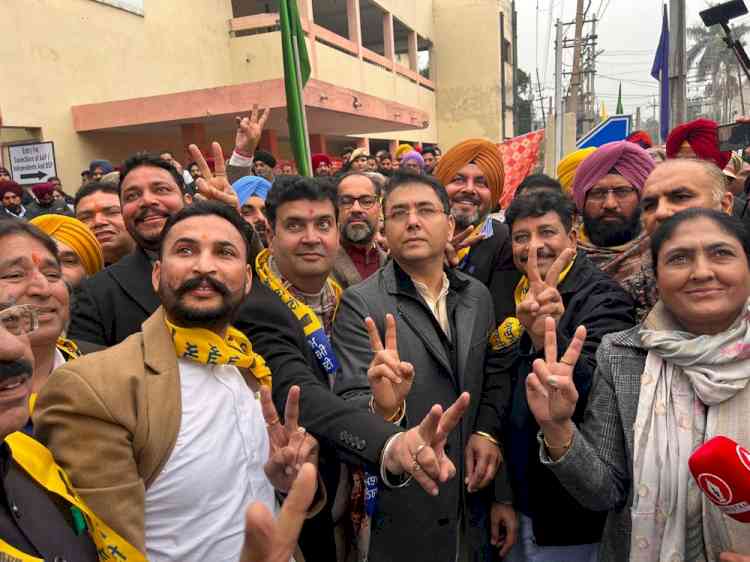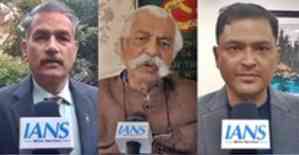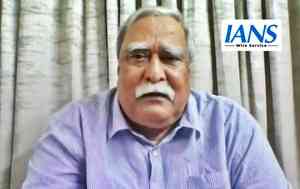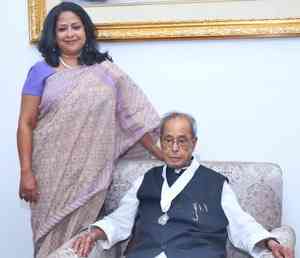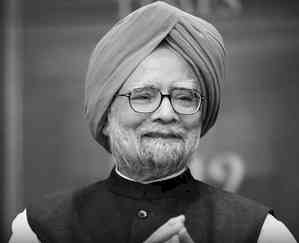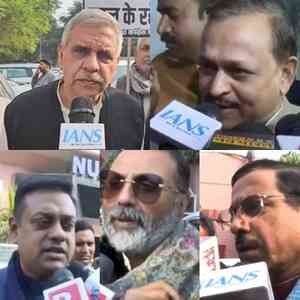EXPLORING THE FUTURE OF RICE PRODUCTION: US DIPLOMAT VISITS PAU
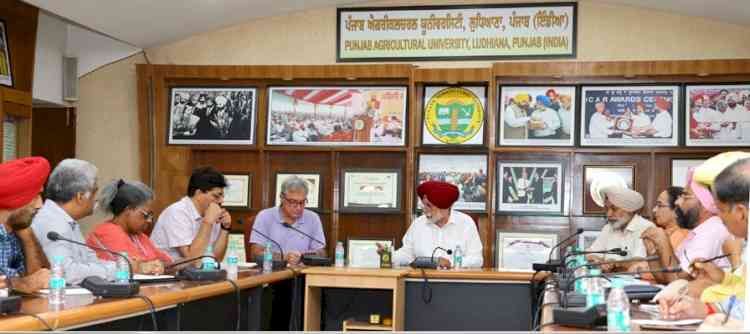
Ludhiana, September 1, 2023: In a recent visit to Punjab Agricultural University (PAU) in Ludhiana, Dr Mariano J. Beillard (Ph.D.), Senior Regional Agricultural Attaché at the U.S. Embassy in New Delhi, engaged in a comprehensive interaction with Dr Satbir Singh Gosal, Vice-Chancellor of PAU and university officers. This meeting was conducted to delve into crucial agricultural matters and strengthen the ties between the United States and India in the realm of agriculture.
Accompanying Dr Beillard were Dr Santosh K. Singh, Senior Agricultural Specialist of US Embassy and Ms. Arnella Trent, Crop Analyst (Indian Sub-Continent), International Production Assessment Division, USDA/Foreign Ag. Service, Washington DC.
The primary focus of their visit to the states of Haryana and Punjab was to assess the prospects of rice crop production in the upcoming season and to gain a deeper understanding of the agricultural economy's performance in Punjab. These two states are key players in India's agricultural landscape, particularly in the production of rice, and this visit aimed to foster collaboration and knowledge sharing in this vital sector.
At PAU, the discussions centered on the agriculture production outlook for the 2023-2024 season, with a particular emphasis on the upcoming rice crop. Dr Beillard highlighted the significance of India's agricultural sector in ensuring food security and economic growth. He commended the strides made by India in agriculture and expressed the United States' commitment to further collaboration and support in this critical domain. He also lauded the role of institutions like Punjab Agricultural University in driving agricultural research and innovation.
Dr Santosh K. Singh raised several queries addressing areas such as rice cultivation, pest incidence, new basmati varieties, labor issues, crop diversification, mechanization, the potential for ethanol production, and global food grain prices. He also fielded questions on the impact of geopolitical issues, like the Ukraine-Russia conflict, on food grain production and prices, India's food grain trade, and Minimum Support Prices.
On the other hand, Dr Satbir Singh Gosal shared his insights on the challenges faced by Punjab's agriculture sector and the university's initiatives in addressing them. Besides updating the diplomat about the nitty-gritty of rice production, he specifically mentioned the rice variety PR 126 which has outshined its peers with a shorter growth period by one month compared to Pusa 44 and 2-3 weeks faster than other varieties. Farmers, in favorable conditions, even achieved an impressive yield of 38 quintals per acre, surpassing the average yield of 30 quintals per acre. He mentioned PAU's emphasis on trainings and advisories for chemical-minimal measures.
Furthermore, Dr. Gosal discussed rust-resistant wheat varieties developed by PAU and the release of the heat-tolerant early-maturing variety PBW 826, which holds promise for other states as well. Specialty varieties like PAU RS-1, PBW1 Chapati, and PBW1 Zn were also mentioned. Regarding ethanol production, Dr. Gosal suggested options such as utilizing broken grains or sugarcane juice and deliberated the importance of crop diversification in the context of Minimum Support Prices and marketing. He noted that wheat and rice cultivation in the region is predominantly mechanized, with prototypes developed by PAU.
Dr Vishal Bector, Associate Director (Institution Relations), moderated the discussion and underscored the importance of international cooperation in addressing the challenges and opportunities in the agricultural sector.


 City Air News
City Air News 
